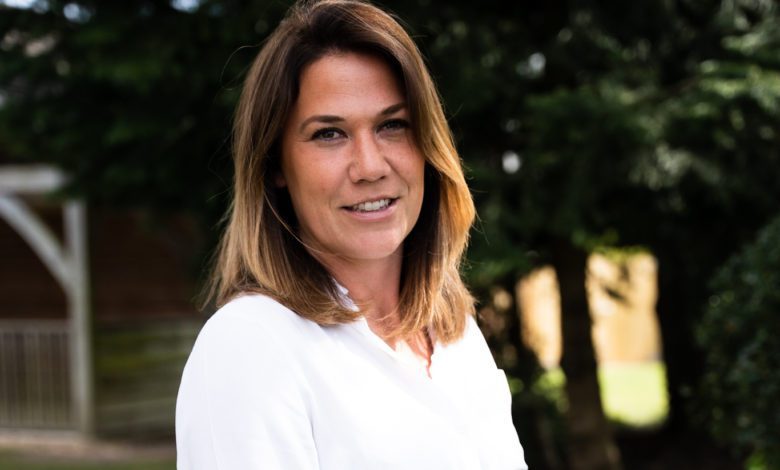What to expect as a female industry leader within hospitality
By Pauline Clitheroe, the sales and revenue manager of Balmer Lawn Hotel and Spa, who was recently crowned winner of the ‘Sales and Revenue of the Year’ award at the Southampton Hospitality Awards 2023

According to UK Hospitality, the hospitality and tourism industry is the third largest private sector employee in the UK; double the size of financial services and larger than automotive, pharmaceuticals and aerospace combined. Currently, 65% of all part-time roles in the hospitality and tourism sector are filled by women, rising to 82% in contract food and service management, and 72% in hotels, of which 49% are in operational roles (540,737 employees) and 11% in managerial roles (121,265), as per an insight report from People’s 1st.
Whilst these findings are encouraging, there were some underlying statistics that pinpoint important areas of focus required to ensure all women working in hospitality feel that they have the tools and the confidence to work in leadership positions.
While the career trajectory of men and women is very similar up until the age of 22, the trajectory of women in the sector starts to fall slightly, before there is a steep decline at the age of 33 – two years shy of the average age for first-time mothers. Of course, while this trend isn’t unique to hospitality and tourism, the evidence confirms too many sector businesses have struggled to retain and progress women, particularly after maternity leave. But why is that?
Having been in and out of hospitality for 23 years, and raising three children along the way, I feel I’m in a position to cast a light on such an issue, as women in positions of leadership need to believe in their own abilities, knowledge and convictions, above anything else. The numbers are against female employees, especially those looking to have children, identifying an attainable route to those positions of leadership, regardless of their industry of work.
This was something that I found particularly challenging upon my return to full-time work, as during my time away from the industry, I felt hopelessly out of practice and my imagination started to run wild. Looking back, that was a horrible experience and one I wouldn’t want any other woman to go through.
With that in mind, if I was going to give any advice to someone who is looking to return to hospitality and business, then without question, it would be to always believe in yourself and never think you’re not good enough. Since returning to the sector two years ago, I’ve never felt better, while my determination to succeed has never been stronger. In fact, it’s because of my children that I have this unwavering drive to push the boundaries and progress my career to its full potential; they are what fuels me each and every day.
The extent to which a business can address these issues surrounding gender equality depends on the types of roles and flexibility their respective industries can offer. Also, in the midst of an economic crisis, an increased emphasis on job retention and progressive roles is more important than ever. This is why it’s imperative that any form of gender bias is eradicated from the sector entirely.
Furthermore, I believe the idea that by starting a family you can run the risk of potentially damaging your long-term career prospects is absurd. In my experience of working in the sector, some of the most effective and transformative figures have been those who have combined work with their family life, as they’re more conscious of what needs to be done in the limited time they have.
At Balmer Lawn, we have cultivated a well-balanced team of independent and inspiring female leaders, which includes our sales executive, Jennifer Howes, and wedding executive, Ruth Mundy, both of whom have demonstrated there are no limits to the incredible work that can be done irrespective of whether or not they chose to start a family.
That said, it’s imperative that as an industry, we do whatever it takes to ensure that people of all genders feel comfortable and that they possess the tools to succeed. No one should ever feel anxious or afraid that they aren’t capable of progressing – no matter their role.
Additionally, it’s vital that we’re realistic in our attempts to level the playing field. There’s no denying that the deck may not be suited in our favour, but the ability to progress in one’s field is ultimately down to the individual themselves, too. It’s irrefutable that a career in hospitality is fast-paced and constantly evolving, but it’s also one that recognises and rewards hard work as well.
With it being International Women’s Day, it’s important to recognise and champion how far we’ve come as an industry, while also recognising that the journey is equally as important as the destination. I encourage all women working in business and hospitality to believe in their own abilities and never let anyone dictate what they’re capable of.
Those who still believe that there comes a point when a woman has to choose between her family and her career are hopelessly stuck in the past, especially when women represent 50% of most target markets in terms of decision-making and spending.
My final piece of advice to any young, aspiring women who are considering a career in hospitality would be to think big, back yourself, find a mentor, listen, learn, and ultimately, enjoy the ride – you’ll never truly know where it’s going to take you.









